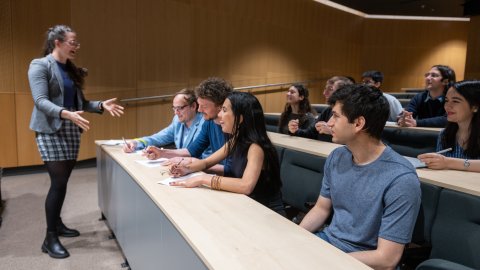Skills Training and Career Development
Developing research, subject specific, personal and professional expertise is crucial to the success of your future career. The skills and experience that got you to where you are now will not necessarily be sufficient to get you to where you want to go next, and so it is important that you continue to develop both depth and breadth of your expertise. The importance of this has been recognised by stakeholders such as the Research Councils and RCUK, and is now supported by two documents - the Researcher Development Framework (RDF) and Researcher Development Statement (RDS).
The RDF describes the knowledge, behaviours and attributes that researchers might be expected to develop at different stages in their career. It has been designed to support the personal, professional and career development of individual researchers, helping them to plan their own professional pathways.
The RDS is a more concise document that has been derived from the RDF. The RDS is intended to be used by organisations that provide training for researchers.
The following information provides details of the training available for researchers* in the MPLS Division and departments.
The DPhil is a period of professional research training and personal development leading to a good general knowledge of your subject and a significant and substantial piece of research. Normally it provides the major step in your progress towards becoming a fully-fledged independent researcher. This professional training supports you in developing advanced specialist skills and knowledge, and broader transferable career skills. Together, all of these elements of the DPhil provide the means for you to develop a set of skills that are of value for a range of careers which achieve economic, industrial and societal impact.
Doctoral education and training in the department is therefore designed and implemented explicitly to support these principles. It aims to support each DPhil student in successfully completing their doctorate and transitioning into their career through a range of measures including:
- In collaboration with your supervisor, the opportunity to tailor your training programme by selecting from the wide range of training provision available that covers research, academic and transferable career skills. Training is available through departments and other providers throughout the University.
- Timely and appropriate career advice, mentoring and support for the development of individual career plans and mentoring.
- Ensuring that supervisors are supported and well-equipped to support your progress.
- Clearly defined milestones to enable you to manage your progress effectively.
- Use of the Graduate Supervision Reporting system (GSR) for timely reporting and recording information about training.
- An articulated core training programme covering the basic skills you will need
- Individual training needs identification
* Note that the information on these pages is tailored to students undertaking the standard DPhil in Mathematics. Students on each of the CDTs should refer to their own course pages.



